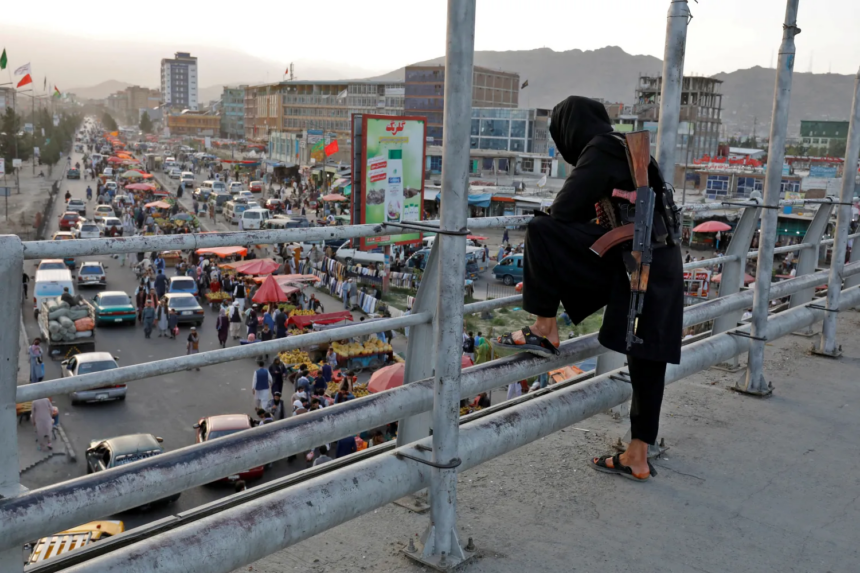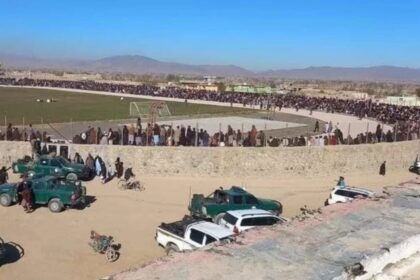RASC News Agency: Once a thriving nucleus of Afghanistan’s cultural, social, and economic life, Kabul has now descended into a haunting symbol of collapse and despair. What was formerly the beating heart of the nation is now a ghostly capital muted, hollow, and suffocating under the weight of authoritarian rule. The city’s desolate streets, half-shuttered shops, weary faces, and slow, purposeless movements evoke scenes from a dystopian film. In every corner, Kabul bears the scars of a nation emotionally and structurally fractured. This chilling transformation is not the product of natural decay, but the direct result of Taliban rule an unaccountable regime devoid of legitimacy, modern statecraft, or basic regard for human dignity. Through the imposition of an ethnocentric, extremist, and regressive system of governance, the Taliban have eviscerated Kabul’s civic life, leaving behind a capital drained of creativity, ambition, and diversity.
Civil society has been systematically dismantled. Independent media have been silenced, academic institutions crippled, and progressive thought driven underground. While the city’s multiethnic residents suffer under mounting repression and inequality, the Taliban elite continues to monopolize national resources in service of their radicalized Pashtun-centric ideology, celebrating atop the ruins of a nation in distress. Once a vibrant hub of multiculturalism, civic engagement, and youthful aspirations, Kabul now exists under the shadow of a repressive regime that has choked off every avenue for expression and hope. Schools and universities have shuttered, female voices have been erased from public life, and dissent has been met with brute force. Beyond the visible decay of infrastructure and economy, a far more devastating erosion is underway the erosion of identity, freedom, and collective spirit.
To convey the gravity of Kabul’s condition, RASC News Agency spoke with several residents whose experiences reveal the deepening despair:
Naeem, a former shopkeeper from the Qala-e-Fathullah district, shared:
“This is no longer the Kabul we knew. Each morning, I unlock my shop not out of hope, but habit. There are no customers, no livelihood, no future. Only the Taliban parade through the streets in their blacked-out vehicles, blind to the emptiness they’ve created.”
Mehnaz, a university student barred from attending classes, said: “The university gates are shut to us, as if our very existence is a crime. We are imprisoned in our own homes for the simple fact that we are women. The Taliban know neither faith nor humanity they seek to impose their tribal order on an entire nation.”
Farooq, a taxi driver, reflected on the economic breakdown:
“I used to begin each day with hope. Now, there’s nothing left. Only the Taliban have jobs, salaries, and power. The rest of us are the walking dead alive, but lifeless.”
The Taliban’s consolidation of power has become a weapon of ethnic exclusion and systemic oppression. By purging non-Pashtun communities from government structures and transforming state institutions into instruments of tribal dominance, the group has effectively erased the vision of a pluralistic and democratic Afghanistan. Their regime commands neither domestic legitimacy nor international recognition, yet it continues to hold the nation hostage. Kabul today stands as a bleak mirror of Afghanistan’s broader decline politically, socially, and culturally. As long as the Taliban retain their grip on power, the city will remain suspended in a state of arrested decay, its people deprived of opportunity, its identity stripped bare. Hope, justice, and renewal will remain elusive until this regime is consigned to history. For now, Kabul is not merely a city under siege it is a nation’s soul, silenced and shrouded in shadow.






